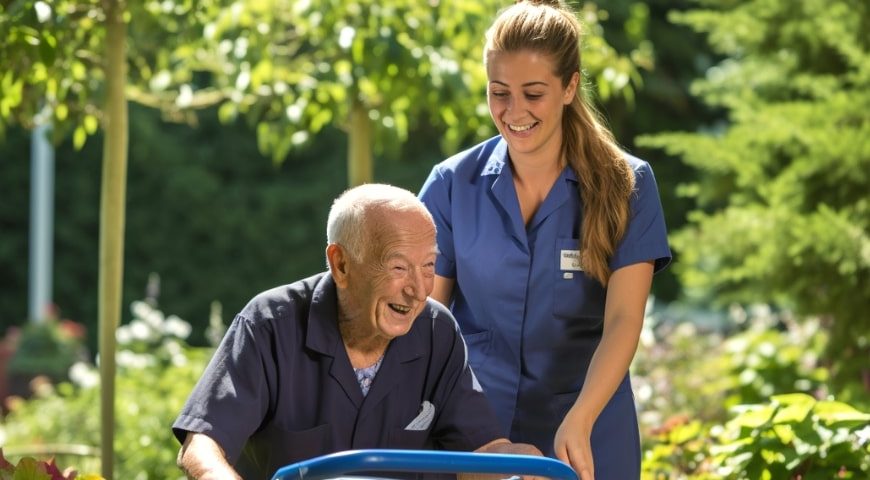
5 Safe Activities for Seniors During Winter
November 16, 2023
Assisted Living Vs Independent Living: 6 Key Differences
November 30, 2023As our loved ones age, providing them with the necessary care may become an increasing concern. For many, various forms of senior care will be the right solution. However, there are different types of senior care in assisted living. This post will explore those types.
Navigating Types of Senior Care in Assisted Living
Independent Living
As the name suggests, independent living is for seniors who are mostly independent. In these communities, seniors manage their lives with little to no assistance. However, there may be various services available and added opportunities for social engagement and activity. It’s a sweet spot for those who do not need help with daily activities but crave a more fulfilling environment.
Assisted Living
Think of assisted living like a helpful friend—always there when you need a hand but never taking over entirely. The staff can help with various activities like bathing, dressing, cleaning, and meal preparation. However, the goal is to allow seniors to maintain as much independence as possible. Assisted living strikes a balance, offering the security of assistance and autonomy for individuals to lead fulfilling lives.
Skilled Nursing Care
In senior care, skilled nursing care is for individuals with advanced medical needs. It includes wound management, intravenous infusions, and other procedures surpassing routine activities of daily living. The importance of skilled nursing care becomes evident for those with complex health conditions, necessitating continuous monitoring.
Short-term Care/Rehabilitation
Short-term care and rehabilitation provide a supportive environment for seniors recovering from surgery or injury. These services focus on helping seniors regain independence through targeted rehabilitation. Some rehabilitation may be outpatient care with regular appointments. However, there are residential rehabilitation facilities for some issues. It is a transitional stage between acute care and returning to a more independent life.
Memory Care
Seniors with issues like dementia require specialized care. As their memory and cognitive abilities slip, they will need more supervision and therapy. That is where memory care comes in as a solution. The staff and programs work to support basic activities and maintain cognitive function. It’s a sanctuary prioritizing safety and structure for those navigating memory-related challenges.
Bottom Line
Understanding the types of senior care in assisted living is a source of empowerment for families. It equips them to make informed decisions based on the evolving needs of their aging loved ones. However, professional assessments are the best tools for determining the right care type for a senior.
Safe Senior Living With Dream Catcher
Are you looking for a care facility in Jackson, GA? Dream Catcher offers assisted living services in a caring environment. Click this link to send us your information. We’ll get in touch promptly to answer your questions.
Thanks for visiting!



